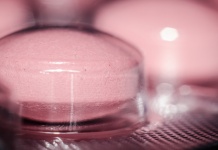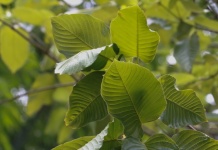Did You Know…that an extract from brown seaweed causes cancer cells to self-destruct … detoxifies the body of chemical build-up … and also burns body fat?
 The medicinal powers of seaweeds have been used for centuries because of their proven ability to prolong life and enhance health and beauty. Over the last decade, continuing worldwide research has shown brown seaweed to be the most beneficial of all seaweeds.
The medicinal powers of seaweeds have been used for centuries because of their proven ability to prolong life and enhance health and beauty. Over the last decade, continuing worldwide research has shown brown seaweed to be the most beneficial of all seaweeds.
Brown seaweed (Laminaria japonica, or kombu) is rich in organic iodine, fucoidan, alginates, fucoxanthin, laminarin, and other mineral values. It also contains all of the 72 different trace minerals, which are often lacking in people living in the Western hemisphere, particularly the U.S. Here’s a breakdown of brown seaweed’s stellar health properties:
| ==> Fucoidan – Approximately 4% of the total dry weight of brown seaweed consists of fucoidan. Fucoidan is a sulfated polysaccharide, also referred to as an “evaporated oligomineral.” It is the fucoidan content in brown seaweed that causes cancer cells to self-destruct, according to the Biomedical Research Laboratories of Takara Shuzo and the Research Institute for Glycotechnology Advancement.This phenomenon of cancer cell “self-destruction” is known as apoptosis, which is caused by a mechanism that is programmed into the nature of the cells themselves. When the apoptosis mechanism is triggered within a cell, the cell’s DNA or genetic blueprint is rendered useless, and therefore destroyed. Apoptosis has been referred as the natural process through which living organisms expel harmful cells.The health benefits of fucoidan have been published in more than 600 scientific articles in The National Library of Medicine. The research shows that fucoidan’s therapeutic properties include immune system enhancement, relief of digestive/intestinal disorders, allergy control, improvement of liver functions, powerful anti-oxidant action, cholesterol and blood pressure regulation, blood sugar stabilization and the promotion of healthy skin and hair.
==> Fucoxanthin – It is the fucoxanthin in brown seaweed that is credited with efficient fat-burning. However, fucoxanthin does not accomplish this by itself. Therefore, taking fucoxanthin supplements will not do the trick. Rather, fucoxanthin works in combination with the mineral iodine that’s also present in brown seaweed. When the thyroid is supplied with a sufficient amount of iodine, the endocrine system is rehabilitated and functions more efficiently — and this increases your body’s metabolic speed, thereby enabling your body toburn calories faster and prevent the accumulation of body fat. ==> Alginates – Alginic acid, also called algin or alginate, is an anionic polysaccharide that exists in the cell walls of brown algae. The alginate content of brown seaweed detoxifies the body of strontium, uranium, mercury, lead — and hundreds of toxic chemicals that we’re exposed to in modern society. Such toxins, which become embedded in the heart, kidneys, liver, brain and other organs, are effectively eliminated from the body by sea vegetables, particularly brown seaweed. ==> Organic Iodine – Most people think iodine is only beneficial for the thyroid, but it’s actually important for other organs of the body as well, including breast and prostate gland tissue. It is believed that the rates of breast cancer in Japan are significantly lower than they are in the Western world because the Japanese consume higher quantities of seaweed. A sufficient level of iodine reactivates the thyroid, and consequently regulates other glands and organs, including the pancreas, gall bladder, kidneys, adrenals, and even the liver. ==> Laminarin – The laminarin content of brown seaweed is a great natural source of energy. |
Because of the publicity that brown seaweed has received in recent years, including a feature article in Time Magazine, it’s not surprising that most people are heading to the nearest health food store and buying brown seaweed. However, there is a danger in simply buying brown seaweed in the form of kelp, kombu or kombu powder as a dietary supplement.
Warning: Consuming large amounts of kombu can actually backfire on you because kombu consists of indigestible cellulose or non-soluble fiber. Even taking a teaspoon or tablespoon of kombu powder, which appears finely ground, can feel like shrapnel to your colon because it is an insoluble substance. Diarrhea or constipation is likely to occur in those who start eating kombu in larger quantities than their bodies are accustomed to.




